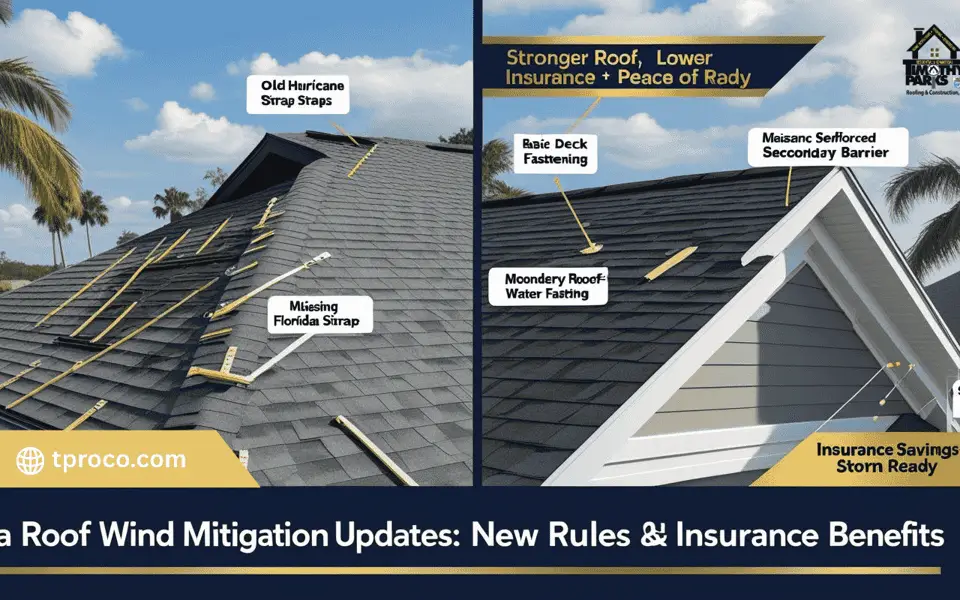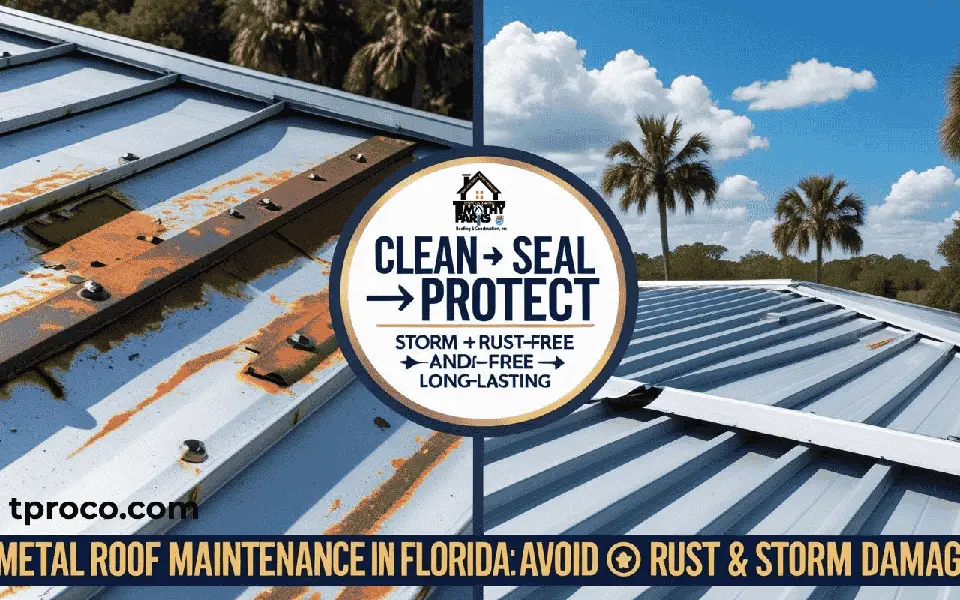Our Blogs
What Is the Roofing Law in Florida?
Roofing laws in Florida are evolving to meet the demands of homeowners, insurers, and contractors, especially given the state’s unique weather challenges. From hurricane preparedness to insurance regulations, understanding the current legal landscape is essential for anyone undertaking roof repairs or replacements in the Sunshine State.
In this blog, we’ll break down the key aspects of Florida roofing laws, recent changes, and what they mean for homeowners and contractors.

Key Roofing Laws and Regulations in Florida
1. The 25% Roof Replacement Rule
Historically, Florida law required that if more than 25% of a roof was damaged, the entire roof had to be replaced to meet current building codes. However, Senate Bill 4D, passed in May 2022, updated this rule.
- Homes built or repaired in compliance with the 2007 Florida Building Code or later now require only the damaged portion to be updated, even if it exceeds 25% of the roof area. This change reduces costs for homeowners while maintaining safety standards.
2. Roof Age and Insurance
Insurance companies in Florida have specific regulations related to the age of roofs:
- For roofs under 15 years old: Insurers cannot deny coverage solely based on roof age.
- For roofs 15 years or older: Insurers must allow homeowners to obtain an inspection. If the roof has at least five years of life remaining, coverage cannot be denied based on age.
This provision, introduced in Senate Bill 2D, ensures that homeowners with older roofs still have a fair chance to secure insurance coverage without unnecessary replacements.
3. Building Code Updates
Florida’s 8th Edition Building Code, effective December 31, 2023, introduced several roofing-specific updates:
- Improved Underlayment Requirements: Ensuring better protection against water infiltration.
- Enhanced Nail Penetration Standards: Making roofs more resistant to hurricane-force winds.
- Secondary Water Resistance (SWR): Promoted as an additional layer of protection, especially in high-risk areas.
4. Florida’s Roof Warranty Law
Under state law, roofing contractors must provide warranties for new roofs. Homeowners should ensure that the terms are clear and meet legal requirements. Contractors who fail to provide these warranties may face penalties.
5. Cancellation Rights and Contractor Regulations
As of July 1, 2024, House Bill 939 introduces new requirements:
- Contractors must disclose specific terms in contracts.
- Homeowners have extended rights to cancel contracts, especially during states of emergency.
These regulations aim to protect consumers from misleading agreements and ensure transparency in roofing projects.
What Is the 15-Year Roof Rule in Florida?
The 15-year roof rule allows homeowners with roofs older than 15 years to request an inspection before insurers can deny coverage. If the roof is certified to have at least five years of remaining life, the insurance policy cannot be denied due to the roof’s age.
How Old Can a Roof Be for Insurance in Florida?
There is no universal limit on roof age for insurance, but roofs exceeding 15 years require inspections to prove their viability. This helps homeowners avoid premature roof replacements and high costs while maintaining insurance eligibility.
Roof Requirements for Homeowners Insurance
Homeowners insurance policies in Florida often require:
- Compliance with the latest building codes.
- Roof inspections for older roofs.
- Proper installation of secondary water resistance systems, especially in high-risk zones.
Key Changes in Florida Roofing Laws for 2024-2025
The following changes are shaping Florida’s roofing landscape:
- Updates to the 25% rule and building code compliance.
- Stricter contractor regulations under House Bill 939.
- Extended consumer protections and transparency requirements.
These adjustments aim to balance affordability, safety, and transparency.
Conclusion: Stay Compliant and Protected
Florida’s roofing laws are designed to enhance safety and minimize risks associated with hurricanes and other environmental challenges. As a homeowner, staying informed about these changes can save you money, ensure compliance, and protect your property.
For expert advice on roof repairs, replacement, or compliance with Florida’s roofing laws, Timothy Parks Roofing & Construction Inc. is here to help.





